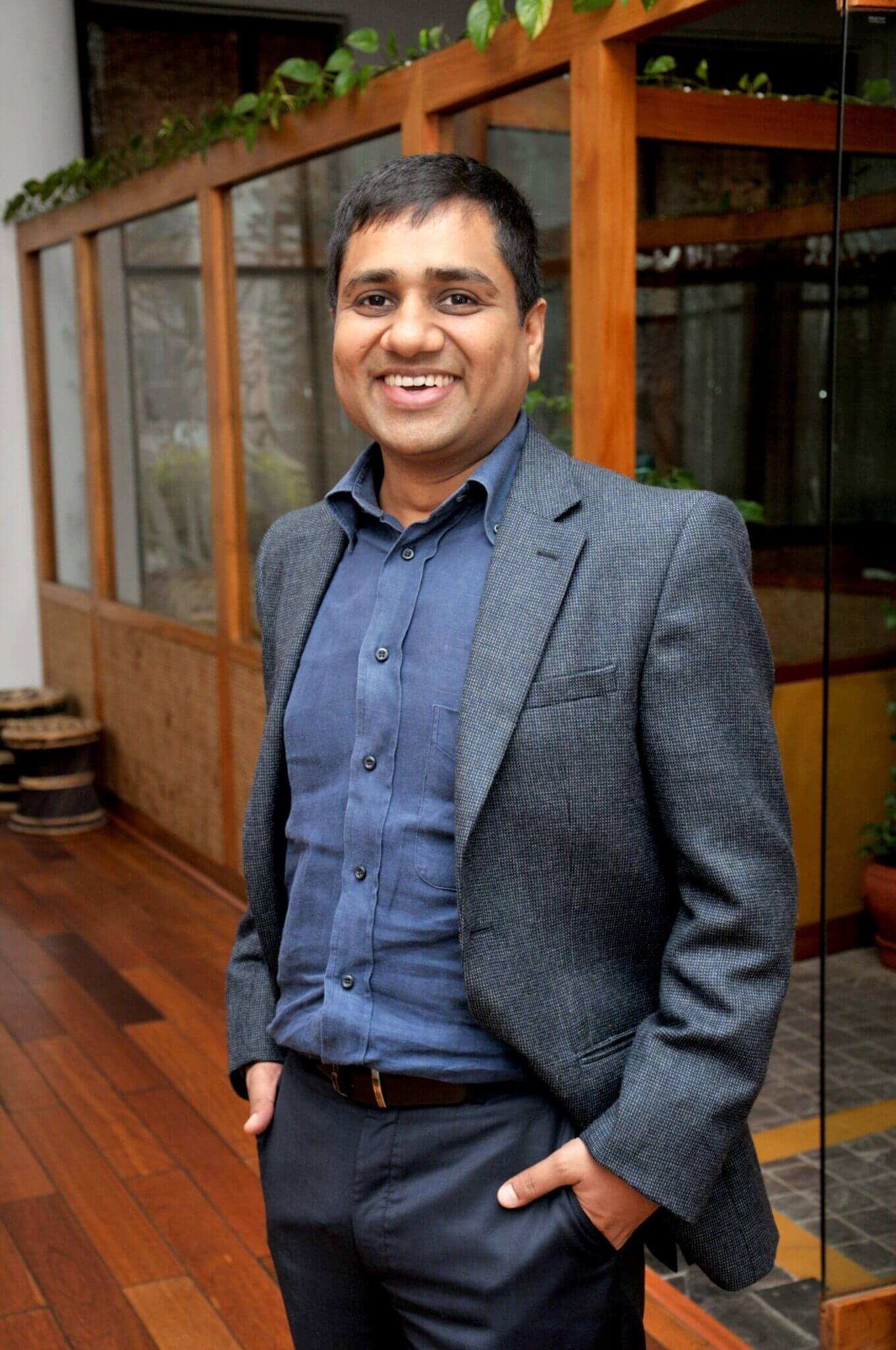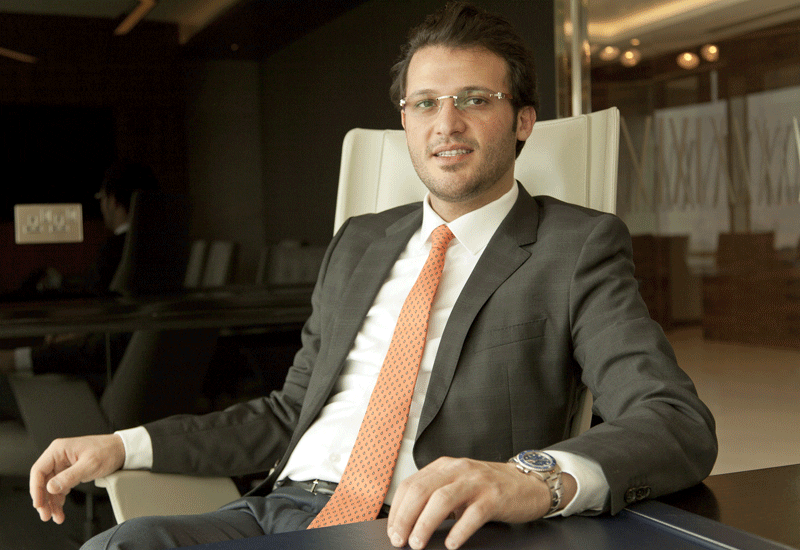Ambarish Gupta is the CEO and Founder of Gurgaon-based cloud telephony start-up Knowlarity Communications. A graduate in Computer Science from the Indian Institute of Technology, Kanpur, Ambarish holds an MBA from Carnegie Mellon University, USA.
He started off his career as a researcher for the Fraunhofer Institute for Computer Graphics in Germany before joining software major EFI. After having worked with consulting firm McKinsey & Company as a Senior Associate, in 2009, he founded Knowlarity, which provides business telephony software to some of the world’s leading corporations.
Based in Gurgaon, India, and backed by Sequoia Capital & Mayfield, Knowlarity has been ranked amongst Asia’s top startups by Red Herring, and was recognised for its innovative practices by the Deloitte Fast50 India programme.
A technocrat at heart, he believes that advancements in communication technology holds much potential for changing how the world does business. There are massive numbers of SME’s in emerging markets but they are under-served because of sales, marketing and distribution issues. To address this market potential, Knowlarity Communications caters to over 10,000 SME’s in 65+ countries.
In your own words what does your Knowlarity do?
Knowlarity is the leading provider of cloud telephony services. Our services make business telephony reliable and intelligent with a suite of hosted products that help businesses improve their productivity. Knowlarity’s flagship products, SuperReceptionist and SmartIVR, can process over a million calls an hour.
How did you come up with the idea of your Knowlarity?
After passing out from IIT Kanpur, I worked for three years in the Silicon Valley. I came back to India in 2004 and started an online real estate brokerage company, Inventica, but it did not take off as it was not a good time for online business to flourish and no venture capitalist was ready to invest in the business. So, I went back to the U.S and did my MBA and served a brief stint with McKinsey. In the year 2008 the telephony industry was going through a revolution. Using automation technology, companies in customer support and marketing could reach out to the masses. The idea was to build a platform which was flexible and did not require too much hardware support. I approached companies and told them that I could give them a phone number with a welcome message and that too without any hardware and at a low cost. That’s how the concept of Knowlarity was born.
Could you walk us through the process of starting up?
Founding a start-up is like an acid bath because by the end of it, you are very different from the person who started it. A start up journey takes everything from you other than your solid determination. You need to engage with reality – the practical world, to be successful. The most important and difficult part is that you cannot progress until you face the harsh truth and are ready to take risks. Inventica’s failure made me go back to the USA to pursue my MBA and I vowed never to venture into a business again.
As fate would have it, the MBA and my ambition to be independent brought me back to India in 2009 to give life to Knowlarity. This was when consumer telephony was at its peak in India. I started with enterprise telephony but found that it was difficult to make consumers pay for a service. Since telephony was the big thing then, it was the best option for me to find a way to cash in on it. It was also the time of the Subprime Mortgage Crisis and none of the VC capitalists were interested in funding new ventures.
Odisha’s Navin Patnaik who was competing in the elections then used Knowlarity’s Enterprise Telephony for his campaigns and promotions. Knowlarity earned about a crore for calling up all 70 lakh people in Odisha asking them to vote For Patnaik. And that’s how we got our seed money for Knowlarity Communications.
Recollecting those days, I believe that it is always better to work with the industry that is growing because it gives you a lot of opportunities to move up the ladder even when you are at your worst. The idea is to keep looking for that one thing which would lift the business, to mix creativity as much as one can to improvise and find a fighting chance. One needs to be flexible with their plans.
While creating a product, one needs to know the kind of market and consumers that they cater too. In emerging markets, people are satisfied with less value at a lesser price and hence it is always better to simplify things than to over engineer them.
Did you encounter any particular difficulties during start-up and if so, how did you guys overcome it?
I remember when I came to Bangalore with big dreams of launching a start-up. I was idealistic and had little experience with the reality of doing business. Starting up is like getting back to college. Everyone knows you, people help each other and trust each other implicitly. Once you have a good product, you are set. My first startup proved me wrong. I was dejected and wanted to move back to the US. I remember constantly telling my wife, that I wanted to come back. Her rejoinder was always, “Finish what you have started. Don’t turn back.”
Soon all my savings were spent. I was getting restless. I moved back to US to do my MBA at Carnegie Mellon. Post MBA, I joined McKinsey Consulting and worked very hard there. There was no sense of weekends. I could see what my life would be like in twenty years’ time if I kept working here. It was a stable job but somewhere I knew this was not me, this is not what I wanted to do with my life. At the back of my mind, I wanted to startup again, and it was just a matter of time before I acted upon it again. In 2008, I began to seriously contemplate launching a startup and moving to India. In 2009 I did just that. Knowlarity started thus.
How have you been developing your company since start-up?
In 2009, when I was living in the US, the developed market was going through a massive recession started by the mortgage crisis. The GDP’s of developed markets was going at around 0-1% growth rate. Emerging markets on the other hand were growing at 8-9% GDP growth at the same time. Telecom in India at that time had an unprecedented growth rate of 100%. Consumers in emerging markets including India, South East Asia, Middle East, Africa were getting mobile phones. This put a thought in my mind that if consumers are getting mobile phones then they would eventually use the same to call businesses, creating a need for businesses to have more than a mobile phone to be able to handle the plethora of calls. They would need a system which could be integrated with their phone number, which could help answer calls, route calls, record calls and push the call details to CRM. This was the insight which pushed us to start Knowlarity.
India was my home country and a large market to boost and hence looked like the right place to start the company. We started offering small businesses and large enterprises phone numbers which are enterprise phone numbers where when the call comes all these wonderful things can be done and since then the business has really taken off. We have 10,000 customers, got multiple rounds of investments, we have built up a successful company and we are looking to follow that route and build up the company in other Asian countries as well.
What kind of feedback did you get for your start-up so far?
We have received a tremendous response for Knowlarity Communications. Today, we have over 10,000 customers in over 65 countries using our products.
What is your strategy against your competition?
In India, our competitors are Exotel, Ozonetel, Sonetel and VoiceTree and globally, we have competition from Twilio and Plivo. However, we are the largest Cloud Telephony Service Provider in Asia and we have been able to capitalise on our expertise in PSTN technology that is mandated in many countries in the Middle East and South America. This sets us apart from the others. Also, understanding the environment in which our customers operate has led us to make investments in areas that are crucial for our customers – a large support team, a large in-house consulting team and investments in reliability and scalability.
Have you developed any industry insights that you could share?
Cloud Telephony is a very recent industry. It has it’s parallel in cloud computing, enterprise computing that has the world in its grips today. Enterprises like Zoho, Salesforce.com are harvesting on cloud because it has much to offer, with less hassle, lower cost and shared resources. It is also a positive that the software is much better and gets updated frequently in a seamless manner. Because of these the cloud industry is growing on a fast-moving pace. Enterprise computing is taking over on-premise computing.
Cloud industry is especially suited for emerging markets entrepreneur because unlike the developed markets there is a lack of proper infrastructure in the emerging markets. Entrepreneurs can give up their worries about taking care of hardware and maintaining it. So it’s a godsend for them, to have a hassle free software, managed on the cloud which is 1/10th cheaper than what it would have cost them to install things on premise. Because of these reasons the cloud industry is growing in leaps and bounds.
All the positives hold true for cloud telephony as well. Everyone today uses a phone, consumers use it to reach out to businesses and businesses would need some kind of telephony solution to handle these calls. Enterprises now have a choice between on-premise and cloud telephony. Cloud Telephony is 1/10th cheaper, hassle-free, no downtime, automatically scales up and down without any problem and gets updated very quickly. It has a bright future in emerging markets. We’ve been riding on this in India. We started this wave in India and have been successfully riding it ever since.
How do you plan to stay relevant in this industry?
Our main focus in the next few years is going to be expanding businesses internationally. In order to do so we will need to build a strong brand presence in national and international markets. Besides selling directly in the market we will also sell with the help of our strong chain of IT integrator and value resellers.
What is the future of the industry in your opinion?
As leaders in cloud telephony in India, we are now looking at expanding our footprint in emerging markets especially in South-East Asia and the MENA region. We have already opened offices in Singapore and Philippines and are in process of opening one in Dubai. We have received a phenomenal initial response in these markets and will continue to offer services as per local market trends. We are also planning to expand the start-up ecosystem to larger geographies and partner with larger clients. We will strengthen our R&D activities and expand marketing operations to newer geographies.
Was there anything that disappointed you initially?
There were a lot of disappointments, but I’d say there was a lot of exciting things as well. While we believe and truly so, that the market is very large, as an overly optimistic entrepreneur I did not overly see the challenges that an entrepreneur could face. Initially we had difficulty in hiring good quality people in the company, there was difficulty selling our product. We also faced some problem with the telecom operators from whom we needed lines to build up this business.
Usually, if you were to ask an entrepreneur what disappointed and what did not work for them, you’d end up getting a laundry list. What is important and keeps most of us excited is the fact that we are looking at a larger opportunity. We have had quite a bit of success, we had partners – investment, sales, technology – come on and join us. And we’ve been doing very well.
What do you think about being an entrepreneur in Asia? Is it harder or easier, why?
It is both hard and easy. It is easier because there is so much opportunity in Asia today and you can really move around on the opportunity you are choosing. However a lot of things don’t work in Asia, which you might take for granted in the west. For eg, the taxi industry has seen an upheaval in India in recent times. Whereas an Uber replaced reasonably good taxi industry in the US, the likes of Ola, TaxiForSure and Uber literally built the new professional taxi industry in India. They brought down the prices, improved the service dramatically and paved way for a new organized industry. Thus entrepreneurs in India and Asia have a wider green field when compared to western countries. The opportunities and the size of the opportunities that exist are much larger.
The harder part is the execution. In the west, execution happens very fast because there are processes already in place. Getting capital for your enterprise, hiring people and training them, doing business quickly, setting up entities, raising debt all happen quickly because it has been done at least 50 times before. In India and in Asia, there is a lot of red tape. Things don’t move that quickly, hiring people is not that easy. There is a lot of physicality to every business that you try to do. It takes time to build trust among the people thus slowing the whole execution process than it would in the West. But as I said before Asia does present more opportunities.
What is your opinion on Asian entrepreneurship vs Western entrepreneurship?
Entrepreneurs are more or less the same whether in Asia or in the West. One glaring difference I’ve observed is that because of lack of such clear opportunities in the West and more opportunities available in Asia, Asian Entrepreneurs are better at execution. This differentiates the success or failure of a venture. In the West I’ve seen more ideation happen. Other than this, Entrepreneurs, and I’m talking as someone who has lived in the valley as well as in Bangalore (India) and now travelling across Asian countries, are the same. The successful ones have figured out how to get things done and that is what matters eventually.
What is your definition of success?
Every building is not a home. A home is not just a building. It takes people to make a home. I have a wonderful team – 400 strong and growing every day. I am simply amazed at their passion and creativity. A Business is a sum of many parts – employees, employer, technology, processes, product and services, goodwill and trust. Each brick is important to the edifice. Brick by brick we have truly laid the foundation of a robust company.
Why did you decide to become an entrepreneur?
I knew I did not want to sell jute bags like my folks. So I joined IIT Kanpur to pursue Computer Science. I enjoyed studying. If I may say so myself, I was quite an intelligent kid. What motivated me immensely was the Homi J. Bhabha Award I won. IIT brought with it great opportunities to learn from, and the chance to discover my interests and what I wanted to do with my life. Then, there was the realization that what I was studying was not immediately implementable. After IIT, I moved outside India and worked in different countries. I remember I came to Bangalore with big dreams of launching a start-up in my own country. But my first venture failed and I returned to work for other companies. The start-up virus continued to live within me and it was just a matter of time before I acted upon it again. In 2008, I began to seriously contemplate launching a start-up again and moving to India. In 2009 I did just that; Knowlarity started thus.
What do you think are the most important things entrepreneurs should keep in mind?
I feel that it is always better to work in an industry that is growing because it gives a lot of scope for growth and help you move up the ladder even when you are at your worst.
Also would like to advice budding entrepreneurs to keep looking for that one thing which would lift up the business, to mix creativity as much as one can to improvise in the best way to find a fighting chance.
Lastly, I would like that add that while creating a product, one needs to know the kind of market and consumers that they cater too. In emerging markets, people are satisfied with less value at a lesser price and hence it is always better to simplify things than to over engineer them.
In your opinion, what are the keys to entrepreneurial success?
Having a plan in mind and finishing it is the key to entrepreneurial success. For some success might be defined in terms of money, or fame or the legacy they leave behind. While for others it might be about making an impact or the opportunity to change the lives of a large number of people. Thus the definition varies from one entrepreneur to the next. I personally feel that what we want to achieve is not important, whether we achieve it or not is. It could be a small thing or a large thing. If you are able to look back and contemplate on what you wanted to do and whether you were able to do it, and if see that you have achieved what you had set out to do, then you can say that you’ve succeeded.





























